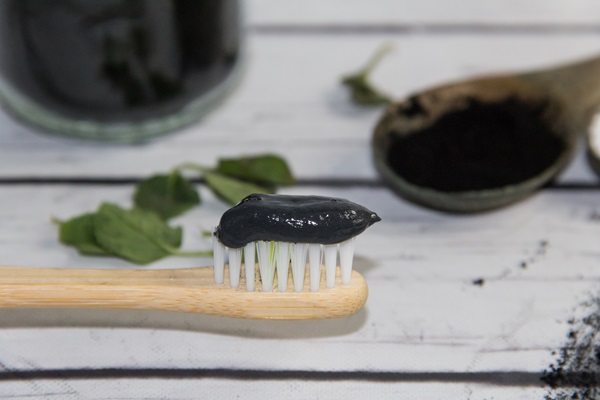Is Charcoal Toothpaste Good for Teeth Whitening? What You Need to Know

The dental industry is subject to the same phenomenon as other industries — the comings and goings of several trends. Recently, charcoal toothpaste has been garnering attention. You may have already seen these things in groceries and pharmacies. And because of their claims, many people have turned to charcoal toothpaste, believing it to be a natural solution for teeth whitening.
Advertised as an alternative to traditional toothpastes, charcoal whitening toothpaste claims to be better at brightening your smile and removing stains. But many would still ask this statement before they put these toothpastes in their carts:
“Can charcoal toothpaste whiten teeth effectively?”
Let’s discuss more about what charcoal toothpaste actually is, and whether it truly benefits your oral health.
What is Charcoal Toothpaste?
Charcoal toothpaste is a kind of toothpaste that’s made with activated charcoal, a form of carbon that is often used in medicine to absorb toxins. In toothpaste, it’s marketed as a natural ingredient that can help remove surface stains on your teeth. The idea behind this is that the charcoal can pull out impurities and polish your teeth, and give you a “whiter” smile.
But before you grab that black toothpaste tube, it’s important to understand the science behind charcoal toothpaste.
The Science Behind Charcoal Toothpaste
As popular as they are today, unfortunately, there’s still no scientific evidence proving that charcoal toothpaste is effective at whitening teeth or improving oral health. Many people have said that charcoal can “pull” impurities from your teeth, but this statement is just pure theory and is not supported by any dental research.
Actually, in this study, it was even mentioned that activated charcoal toothpaste “… possess a lower whitening effect than other alternatives and can be considered as less safe due to its high abrasive potential.”
That being said, charcoal toothpaste, especially those activated ones, is not good for the teeth because of the presence of charcoal. It’s likely that the rough texture of the charcoal simply scrapes away the top layer of the teeth, which is the enamel.
Even products like charcoal toothbrushes are mostly for show. The black bristles might look cool, but they don’t offer any additional benefits compared to regular toothbrushes.
Why Do People Believe Charcoal Toothpaste Works?
One of the reasons people think charcoal toothpaste is effective is due to the stark contrast between black toothpaste and the whiteness of their teeth. When you use black charcoal toothpaste, your teeth might seem whiter simply because of the visual contrast. This is a trick of the eyes, not a real improvement in the colour of your teeth.
Another reason for its popularity is that people like the idea of using “natural” ingredients. Charcoal is seen as a safer alternative to chemical-based teeth whitening products. But while it may be natural, it does not mean that it’s safer.
Is Charcoal Toothpaste Safe?
Now comes the important question: “Is charcoal toothpaste safe for my teeth?”
The answer is more complicated than a simple yes or no. While charcoal itself isn’t toxic, its abrasive nature can be harmful to your teeth over time.
Here’s why:
- Charcoal is rough in texture: Activated charcoal works like a scrub, which means it can wear down the enamel on your teeth. Enamel is the hard outer layer that protects your teeth from decay. Once enamel is worn down, it doesn’t grow back, and your teeth can become more sensitive to temperature, more prone to cavities, and even appear more yellow as the underlying dentin becomes exposed.
- No fluoride in charcoal toothpaste: Fluoride is an essential ingredient in most toothpastes because it strengthens tooth enamel and helps prevent cavities. Many charcoal toothpaste don’t contain fluoride, which means you’re missing out on an important part of dental care when you use it regularly.
The Real Purpose of Toothpaste
When you brush your teeth, the ultimate goal is to remove plaque that was stuck in the crevices of your teeth and was not removed by water. Plaque is the sticky layer of bacteria that forms on our teeth. The most effective way to remove plaque is through proper brushing and using interdental brushes to clean between the teeth. Whether or not you use toothpaste is less important than the act of brushing itself.
However, toothpaste still plays an important role in brushing your teeth because it contains fluoride and other minerals like calcium and phosphate, which help strengthen your teeth and protect against cavities. This is where most charcoal toothpastes fall short—they might clean your teeth, but they don’t provide the necessary minerals to keep your enamel strong.
Is Charcoal Toothpaste Worth It?
The bottom line is, while charcoal toothpaste may be effective in removing surface stains temporarily, it’s not the safest or most effective option for long-term use. The abrasiveness of charcoal can damage your enamel, and the lack of fluoride in many charcoal toothpastes leaves your teeth more vulnerable to decay.
Instead of relying on charcoal toothpaste, focus on proven methods like using fluoride toothpaste when brushing your teeth, flossing or using interdental brushes and getting professional whitening treatments to keep your smile healthy and bright.
If your teeth are due for a dental cleaning, our dentists at Whitehorse Dental are happy to help bring you closer to healthier teeth. Pick a schedule online or call us at (03) 8838 8820 for an appointment.



